

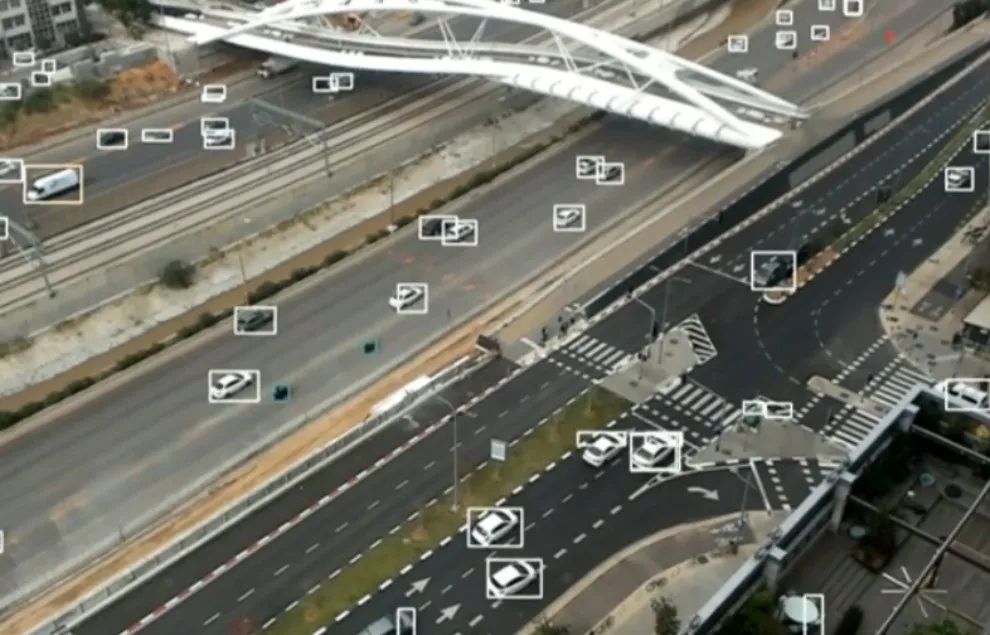

This article is sourced from: Smart Car Technology
Recently, there has been news online about LeddarTech partnering with Hailo to create solutions for ADAS (Advanced Driver Assistance Systems) customers that are higher in performance, more affordable, more scalable, more flexible, and lower in power consumption.
We can’t help but ask, what kind of companies are they? What has led to their collaboration in the fields of ADAS and AD (Autonomous Driving)? What problems can they solve for users? Let us explain in detail.

What is the optimal solution for ADAS?
As the automotive industry has developed to this point, it is no longer just a means of transportation from point A to point B; people are increasingly pursuing higher safety, comfort, and better travel experiences. The INRIX 2022 Global Traffic Congestion Survey shows that drivers in London, Chicago, and Paris waste an average of 156, 155, and 138 hours per year respectively in traffic jams, with other major cities not faring much better.
Autonomous driving, especially its initial phase, ADAS, is precisely designed to address traffic congestion while ensuring safety, through functionalities such as TJA (Traffic Jam Assistance), HWA (Highway Assistance), and ALCA (Automatic Lane Change Assistance), improving the travel experience for drivers and other road users.
However, to date, ADAS remains a very complex and expensive solution, and the products themselves still have various issues. As emphasized by JD Power in the “2022 Mobility Information Index Study,” automotive users are still not very familiar with the conveniences offered by ADAS, and the varying operations and performances of ADAS across different models make it even harder for people to understand and accept.
In fact, ADAS functionalities can significantly impact the new car sales, market share, and profitability of OEMs, including Tier 1 suppliers, leading both parties to compete in developing the latest ADAS features. However, the difficulty lies in the fact that ADAS developers must balance multiple needs, such as performance and innovation, cost optimization, ease of integration, cross-model platform scalability, flexibility to adapt to different architectures, safety, and compliance.
Therefore, OEMs and Tier 1 suppliers need to procure ADAS subsystems themselves and collaborate with different partners to provide various valuable innovative solutions for car buyers. This way, they can not only accelerate time to market and enhance performance but also reduce costs, gaining new technologies, methods, knowledge, solutions, and ways of thinking that they do not possess.
ADAS developers have also realized that only by adopting better sensor fusion and perception can they enhance ADAS performance, thereby increasing acceptance and confidence in ADAS among the public. This has become the goal pursued by all ADAS developers.
The collaboration between Hailo and LeddarTech provides an optimal solution to address the aforementioned conflicting demands.The cost-effective solution jointly developed by both parties can be implemented in every vehicle, not just luxury cars.
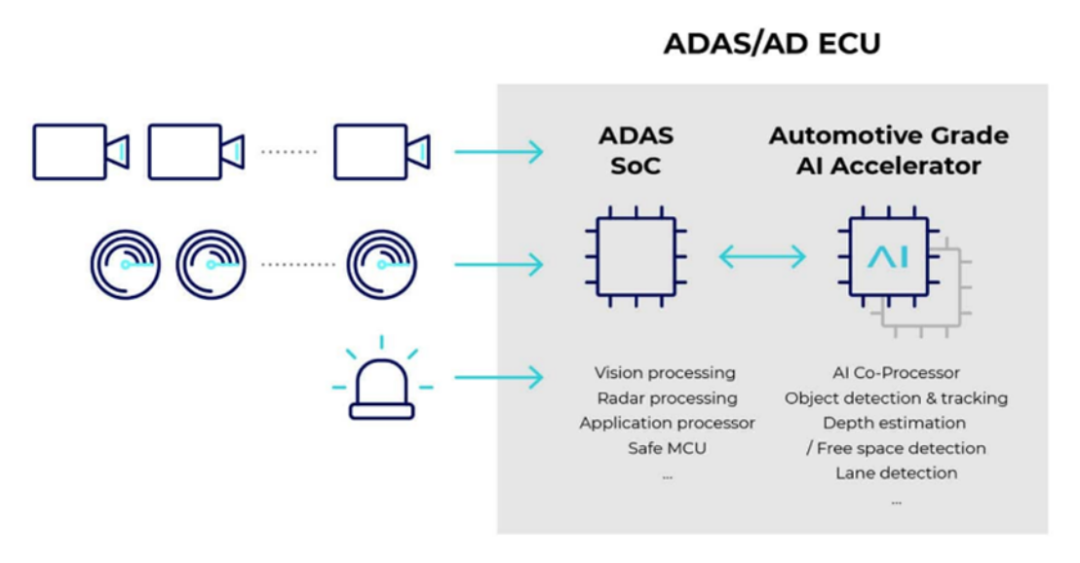
The vehicle SoC combined with Hailo AI processors or multiple processors provides maximum flexibility and AI computing scalability for ADAS/AD ECU.

Hailo AI processor unlocks ADAS capabilities
As the automotive industry moves towards fully autonomous driving, the requirements and technologies for ADAS are also rapidly evolving, with corresponding standards and regulations continuously evolving, such as Euro NCAP’s “Vision Zero” for 2025 and the focus on protecting VRUs (Vulnerable Road Users) being integrated into visual systems—such as AES (Automatic Emergency Steering), LAS (Lane Assist), LKA (Lane Keeping Assistance), as well as RCW (Rear Collision Warning) and LSP (Side Collision Protection) systems. To meet the evolving safety standards and regulatory requirements, an increasing number of vehicles are starting to be equipped with ADAS.
From an application perspective, ADAS currently largely relies on dedicated smart cameras that require strong processing capabilities, but the power budget and space for in-vehicle systems are very limited, and using traditional processors (i.e., CPU and GPU) struggles to meet performance demands. Additionally, L3 and above levels of autonomous driving require complex multi-sensor system fusion, and deep neural networks need to perform more efficient processing, leading to a continuous rise in automotive computing demands.
OEMs and Tier 1 suppliers have recognized this issue and are looking for solutions through investments in automotive AI technology to support the development of ADAS and future autonomous driving.
Founded in 2017, Hailo is a chip manufacturer dedicated to solving this problem. The Hailo AI processor developed by them adopts industry-leading performance and scalable structured data flow architecture, allowing a small, low-power chip to easily process multiple high-resolution video streams and real-time AI from different types of sensors.
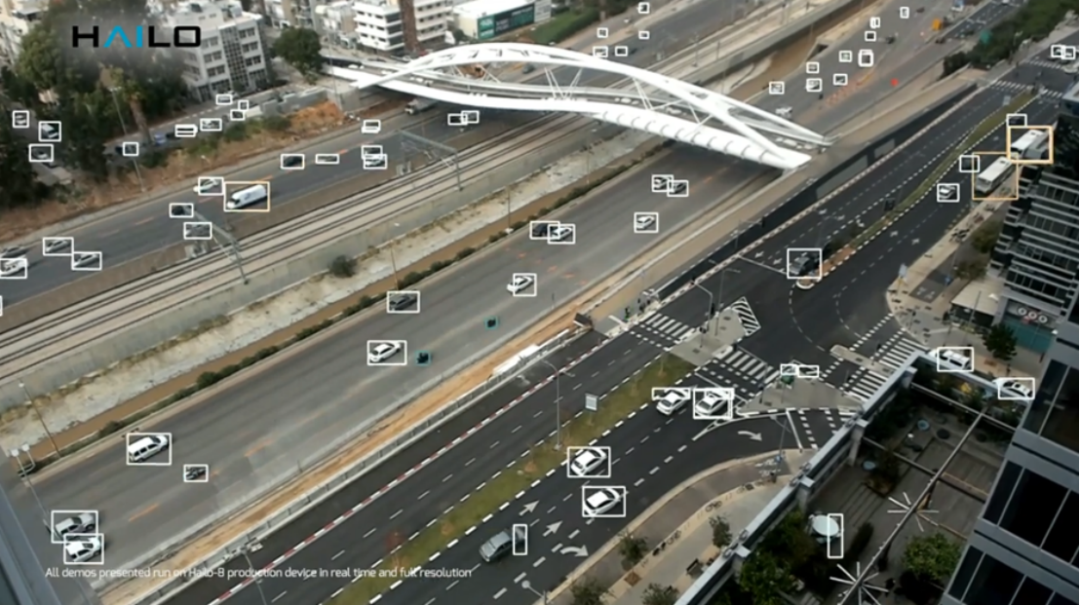
Real-time processing with Hailo
Multiple chip combinations can handle serial and cascading tasks, processing larger workloads.While ensuring industry-leading efficiency, scalability, big data processing, and low latency, the flexible combinations are suitable for processing various resolutions and video sizes, fully meeting the workload requirements of ADAS deep learning.
The Hailo AI processor is built for efficient, high-throughput, and low-power AI processing in automotive-standard systems, capable of running multiple neural networks simultaneously with low latency in real-time on one or multiple high-resolution video inputs; while meeting strict space and heat dissipation requirements.
For example, to meet Euro NCAP’s in-vehicle monitoring (driver monitoring, passenger monitoring, and child activity detection) safety requirements, using a small, low-power, powerful computing-intensive device—the Hailo AI processor—can support multiple neural networks and sensor inputs, accelerating the in-vehicle monitoring system for VRU protection with industry-leading efficiency, high processing throughput, and low latency.
To achieve a higher level of automation, there is a need for faster and more accurate sensors and the ability to process the data obtained in real-time.Applications such as VRU, LAS, RCW, LSP, AES, and APS (Automatic Parking) require processing multiple video sources, even 360° surround views of the vehicle.
To this end, Hailo has developed a reference platform for the Hailo AI processor that encompasses FFC (Forward-Facing Camera) and ADAS Electronic Control Units. For FFC, which has almost become standard in high-end and entry-level vehicles, the Hailo AI processor can reliably control FFC running at higher frame rates and resolutions with high-speed low latency, responding more quickly to unexpected behaviors of road users.
Due to greatly improved product performance, in FFC applications, the Hailo AI processor does not need to compress high-pixel images, alleviating concerns about latency, image quality, and accuracy. Thanks to the chip’s small size and lack of need for additional memory, it can also accommodate camera sensor size, energy consumption, and heat dissipation.
The Hailo AI processor is an AEC-Q100 Grade 2 automotive AI processor, fully compliant with ISO26262 ASIL-B standards.Automotive AI camera manufacturers can use it to create high-performance, low-heat, cost-optimized products, providing future assurance for partners’ AI automotive investments.

Industry Leader: Hailo-8™
To achieve high-performance embedded deep learning applications on edge devices, Hailo has developed groundbreaking AI accelerators and vision processors. Among them, the Hailo-8™ processor is specifically designed for deep learning development on edge devices. Its outstanding capabilities provide data center-level performance for edge devices, making it a leader in the AI processor market for ADAS domain controllers.
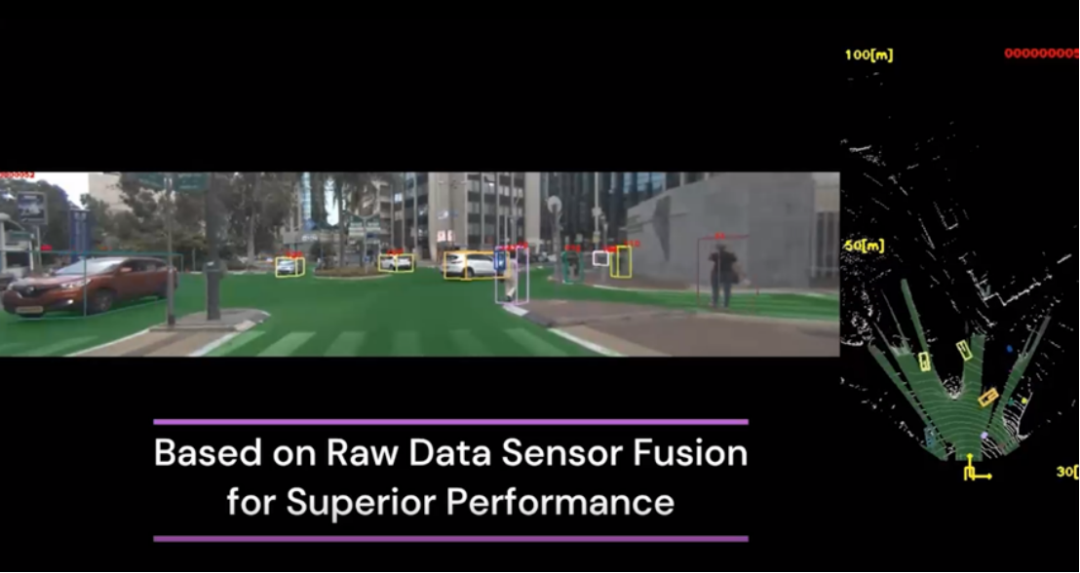
The Hailo-8™ processor
It is reported that the Hailo-8™ can provide 260 trillion operations per second (TOPS) AI performance, greatly surpassing all other edge processors. Its compact size also includes storage capabilities, and it even has built-in memory, with size and power efficiency far ahead of other advanced solutions. Compared to other AI chip solutions, its excellent neural network architecture allows edge devices to run deep learning applications more efficiently and sustainably, significantly reducing system costs.
In summary, Hailo-8™ has the following key features and advantages:
• A holistic solution composed of hardware and software meets the high-performance AI analysis needs at the edge
• Employs a novel structure-driven data flow architecture
• Unprecedented performance can process high-definition video data in real-time (without down-sampling); rated power consumption is 2.5W; high power efficiency
• Smaller size, lower cost solutions
• Can be used as an independent processor or a coprocessor
• Provides scalable performance through chip cascading
• Easy integration of hardware without additional external memory
• Seamless integration with popular software frameworks
• Suitable for automotive and industrial-grade solutions

Exceptional performance achieved through sensor fusion based on raw data

LeddarTech and Hailo Collaborate to Solve Problems
LeddarTech is a software company dedicated to providing the most flexible, powerful, and accurate ADAS and AD sensing technologies, specializing in low-level sensor fusion and perception solutions. In September 2022, the company was honored as one of Canada’s fastest-growing companies by the Globe and Mail.
Hailo, on the other hand, is an Israeli AI processor chip manufacturer primarily focused on edge applications. Its processor designs stem from a rethinking of traditional computing architectures, aimed at enabling smart devices to execute complex deep learning tasks with low power, small size, and low cost, such as real-time object detection and segmentation. These processors are applicable across various intelligent machines and devices, significantly impacting industries and fields such as automotive, security, Industry 4.0, and retail.
LeddarTech and Hailo are working together to address challenges related to performance, cost, integration capabilities, scalability, flexibility, safety, and compliance.
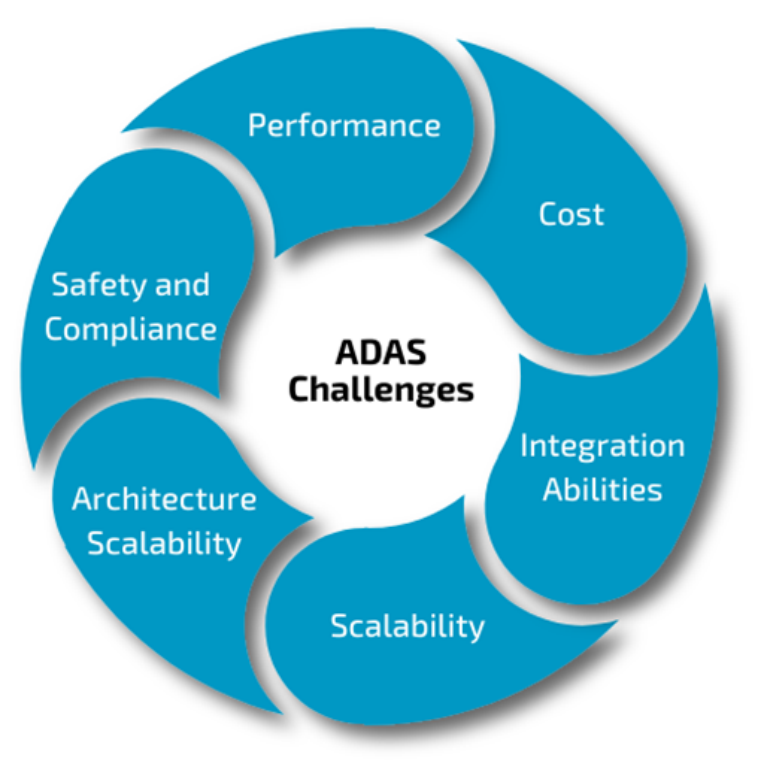
Challenges of ADAS
It is understood that LeddarTech’s newly launched LVS-2+ is a comprehensive low-level fusion and perception software stack that supports advanced surround L2/L2+ ADAS highway assistance and five-star NCAP 2025/GSR 2022 safety applications. Combined with Hailo’s low-power, small size, and high computational capability Hailo-8™ AI processor, it can achieve 360° panoramic situational awareness and bird’s eye view (Bird’ Eye View (BEV)) with 5 cameras and 5 radar architectures, delivering advanced and smooth ADAS application effects, especially for ALCA, NOH (Highway Navigation Assistance), TJA, as well as AEB C2C (Automatic Emergency Braking), AEB VRU (Pedestrian and Cyclist Automatic Emergency Braking System), RCTA (Reversing Cross Traffic Alert), and LKA safety applications, making travel more comfortable and safer.
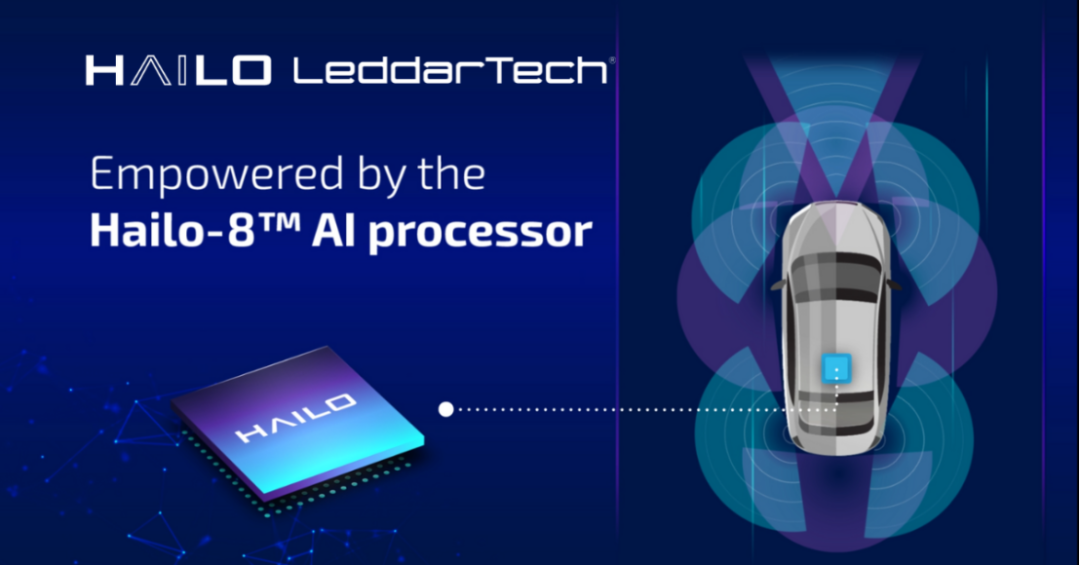
LeddarVision Surround View Solution
As a partner of OEMs and Tier 1 suppliers, LeddarTech has a unique advantage in sensor fusion and perception; Hailo has profound expertise and cutting-edge technology in edge AI processing, capable of providing high-quality products, technical solutions, and comprehensive support throughout the entire development process of ADAS.The LVS-2+ developed through their collaboration will change people’s attitudes towards ADAS while providing the following benefits to OEMs and Tier 1 suppliers.
First is outstanding performance.
The performance advantages of LVS-2+ include: the ability to recognize objects more than 200 meters away; ACC supports speeds of up to 160 km/h, with an extremely low false alarm rate for objects within hazardous areas.
Secondly, scalability and flexibility.
LVS-2+ is based on LeddarVision™ technology, providing scalable technology that allows OEMs and Tier 1 suppliers to expand from ADAS to higher-level autonomous driving, achieving scalability from L2 to L5 using a universal software platform, reducing rework, lowering R&D costs, and shortening time to market.
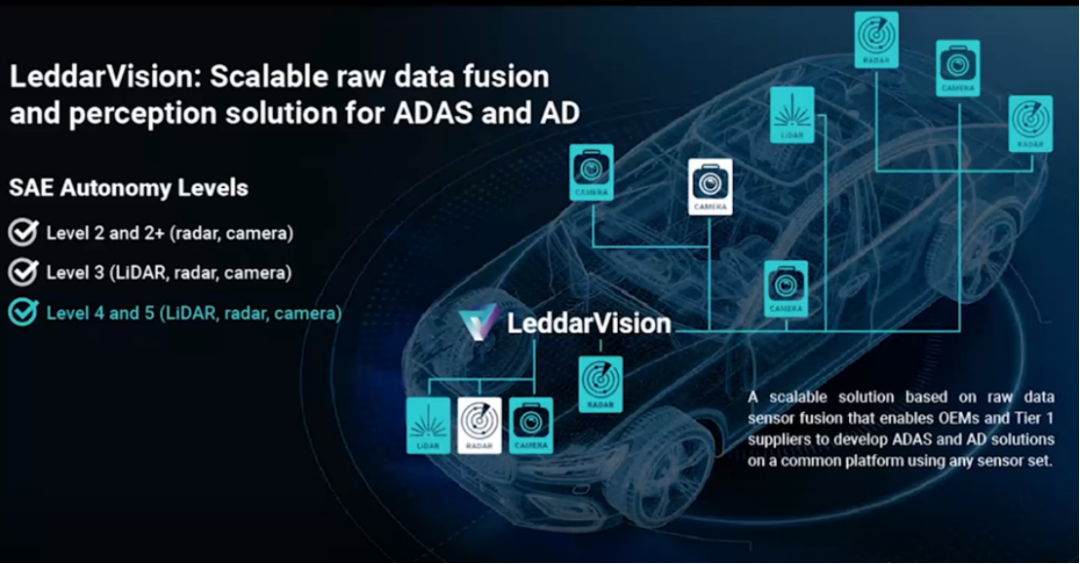
LeddarVision’s ADAS/AD
Scalable raw data fusion and perception solutions
Additionally, since LeddarVision is compatible with any sensor architecture composed of cameras, radar, and LiDAR sensors, ADAS developers can leverage a universal scalable platform to design various ADAS functionalities, such as camera-radar architecture ACC, or camera-radar-LiDAR architecture NOH, etc. Flexible software helps shorten R&D time, reduce R&D costs, and quickly realize ADAS commercialization.
In terms of cost, the software and hardware combination provided by LeddarTech and Hailo offers a more optimized cost structure. Hailo processors typically do not require external memory and have very low power consumption, with heat dissipation solutions further reducing costs. While using lower-spec sensors and processors, it does not affect product performance at all.The highly cost-effective LVS-2+ not only significantly enhances the profitability of OEMs and Tier 1 suppliers but also helps ADAS smoothly transition from the high-end luxury car market to the more cost-effective mass automotive market.
Thirdly, improved power efficiency.
Multiple systems in vehicles require ECU and processor power supply, and power efficiency is a key factor affecting the automotive E/E architecture. The Hailo-8™ chip can achieve extremely high AI computing capability at a power consumption as low as 5W.
Fourthly, accelerating time to market.
The high-performance solution combining LVS-2+ and Hailo-8™ processors can assist OEMs and Tier 1 suppliers in defining ADAS functionalities, objectives, and operational designs, accelerating development speed while creating personalized products, gaining a competitive edge in the market.

Conclusion
In recent years, ADAS has made significant progress, but there are still many performance defects and demands for cost reduction and efficiency improvement. The ADAS solutions provided by LeddarTech and Hailo are higher in performance, more economical, more scalable and flexible, and lower in power consumption; the edge AI processor directly addresses the pain points of ADAS, benefiting OEMs and Tier 1 suppliers while advancing the iteration of ADAS and AD technologies.
In the future, Hailo will continue to work closely with global partners to provide products with various levels of functionality suitable for edge environments, especially partnering with OEMs and Tier 1 suppliers at the forefront of AI automotive technology, introducing advanced deep learning capabilities for ADAS and AD systems, while meeting the continuously evolving safety standards and regulatory requirements, jointly promoting the development of autonomous driving technology.

– End –





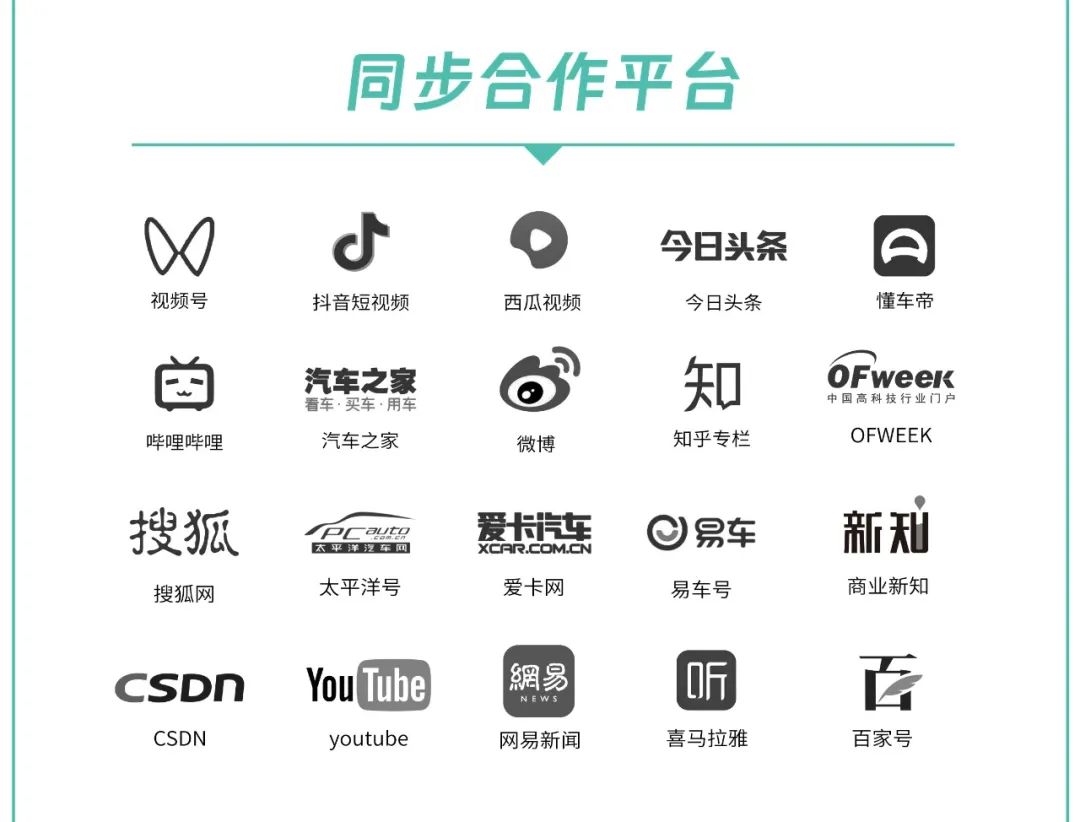

Disclaimer:
All works marked as “Source: XXX (not Smart Car Technology)” in this public account are reprinted from other media, with the purpose of conveying and sharing more information, and do not represent the platform’s endorsement of their views or responsibility for their authenticity. Copyright belongs to the original author. If there is any infringement, please contact us for deletion.